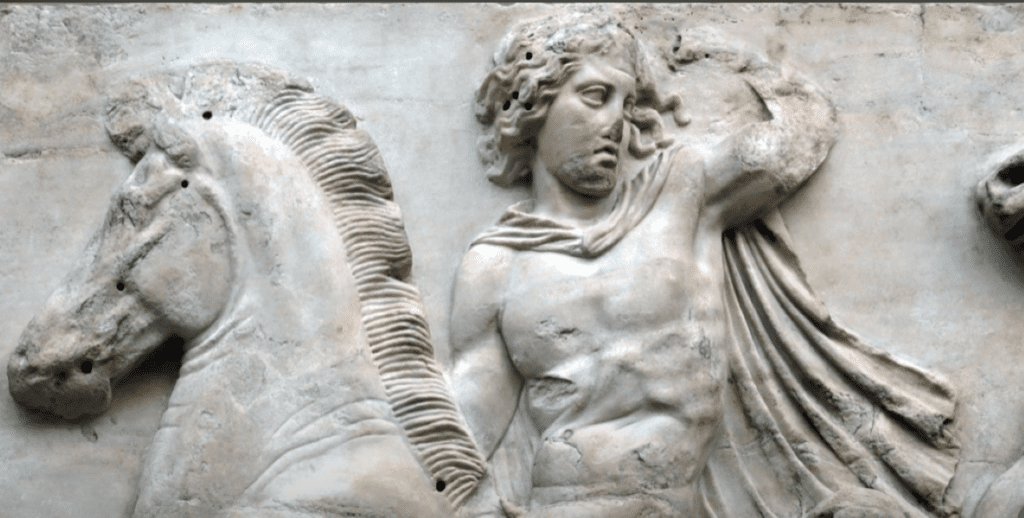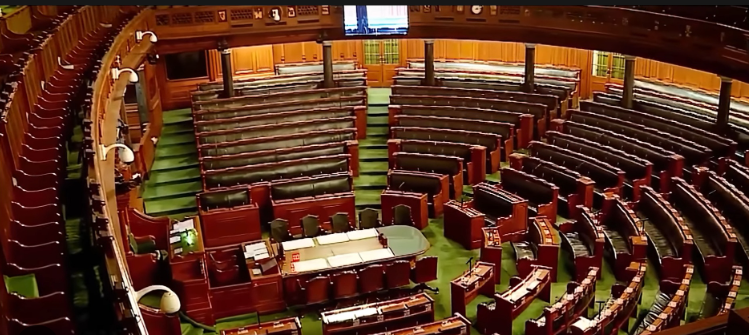Greek-British Diplomatic Row Over the Parthenon Sculptures
Greek Prime Minister Kyriakos Mitsotakis recently accused his British counterpart, Rishi Sunak, of canceling a planned meeting in London. The diplomatic dispute revolves around the longstanding issue of the Parthenon Sculptures, removed by British diplomat Lord Elgin in the 19th century. Mitsotakis expressed his annoyance, emphasizing the need to discuss Greece’s position on the sculptures, which have been a source of contention between the two countries for centuries.

Historical Background
Lord Elgin’s removal of the Parthenon Sculptures during his ambassadorship to the Ottoman Empire remains a historical controversy. Greece has consistently called for the permanent return of these 2,500-year-old sculptures, currently housed in the British Museum.
Mitsotakis’ Accusation
The Greek Prime Minister conveyed disappointment over the canceled meeting just hours before its scheduled time. Mitsotakis had hoped to engage in a constructive dialogue with his British counterpart on the Parthenon Sculptures issue, emphasizing the importance of addressing arguments when one believes in the rightness and justice of their positions.
Greece’s Position
Greece’s position on the Parthenon Sculptures is well-established. Mitsotakis, in a BBC interview, expressed dissatisfaction with the slow progress of talks with George Osborne, the chair of the British Museum. He drew attention to the symbolism of the sculptures, likening their continued presence in the British Museum to cutting the “Mona Lisa in half,” highlighting the issue as one of “reunification” rather than ownership.
British Response
In response, the British government, through an unnamed official, stated that the ongoing row made it unsuitable for the meeting to proceed. The refusal to return the sculptures was reiterated, with a mention of Deputy British Prime Minister Oliver Dowden being available to discuss global challenges like illegal migration.

Diplomatic Alternatives
Despite the disagreement over the sculptures, there is an emphasis on the importance of the UK-Greece relationship. Dowden’s availability for discussions signals a commitment to address shared challenges, underscoring the need for collaboration amid diplomatic tensions.
Legal Aspect
The British government maintains its ownership of the marbles, citing legal acquisition. While a law prevents removal, there is room for a loan, as reported by the Financial Times. This legal nuance adds complexity to the diplomatic dispute.
Meeting with Keir Starmer
While the meeting between Mitsotakis and British opposition leader Keir Starmer proceeded as planned, Starmer’s reported willingness not to block a “mutually acceptable” loan deal for the sculptures introduces a potential diplomatic avenue.
Conclusion
The Greek-British diplomatic row over the Parthenon Sculptures underscores the challenges in resolving historical disputes. As the two nations navigate their differences, the symbolism and legal intricacies surrounding the sculptures add layers to the ongoing dialogue.

FAQs:
1. **Q: Why are the Parthenon Sculptures a source of dispute?**
– A: The sculptures were removed by Lord Elgin in the 19th century, and Greece seeks their permanent return from the British Museum.
2. **Q: What is Mitsotakis’ analogy of cutting the “Mona Lisa in half” about?**
– A: Mitsotakis likens the continued presence of the sculptures in the British Museum to dividing a masterpiece, emphasizing the issue as one of “reunification.”
3. **Q: Is there a possibility of a loan deal for the sculptures?**
– A: Reports suggest that a loan deal might be considered, as legal restrictions permit loans despite the British Museum’s ownership.
4. **Q: How does the diplomatic row impact UK-Greece relations?**
– A: While the row creates tensions, there is a commitment to addressing global challenges together, as seen in Deputy Prime Minister Oliver Dowden’s availability for discussions.
5. **Q: Did the meeting with Keir Starmer contribute to a resolution?**
– A: Starmer’s reported openness to a “mutually acceptable” loan deal suggests a potential diplomatic avenue, but the overall resolution remains uncertain.





